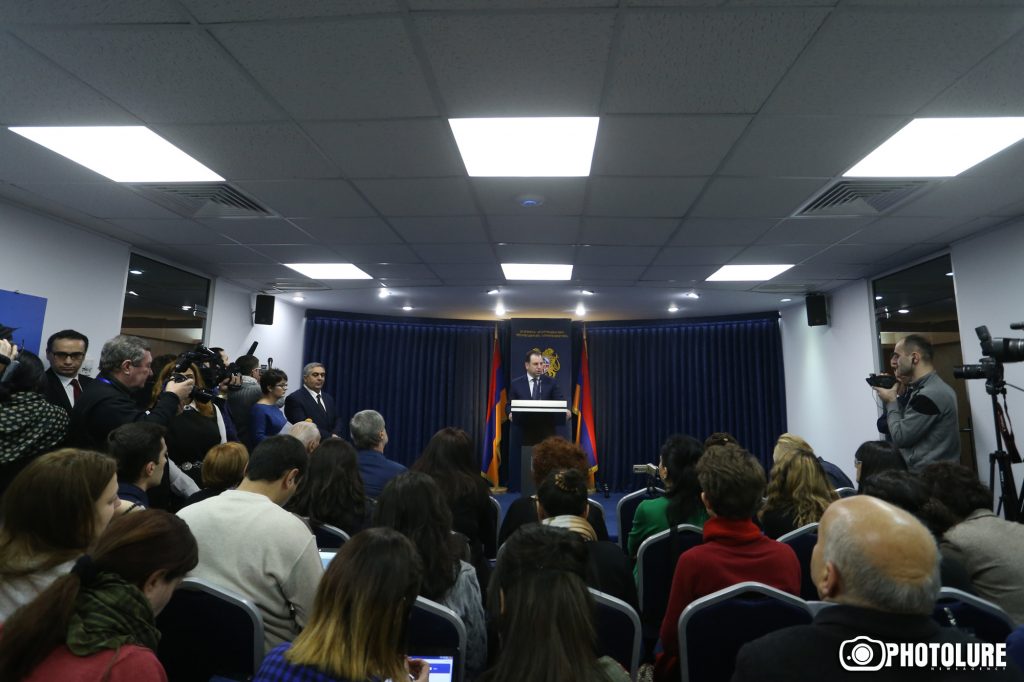At the parliamentary corridors, officials and journalists are often confronted primarily because the former often do not want to answer questions, and the latter strive to get those answers. On Monday, a similar incident took place with the participation of Minister of Defence. Journalists do their job, their goal is to get material. It is also important to take into account the peculiarities of online journalism, when running after an escaping official, overcoming the “barrier of bodyguards”, and voicing “sharp questions”, will receive considerably more views on YouTube than any minister’s answer to any question.
Officials should take that into consideration and display restraint and patience in all circumstances. I’m sure it’s better to have hundreds of websites, hundreds of opposing opinions, hundreds of journalists and hundreds of questions, sometimes confusing and “tactless”, than to have “academic calmness” – a “mutual understanding atmosphere” specific to Brezhnev stagnation. Either one or the other, there is no average here.
Several small remarks also for journalists. “The impression is that you are not aware of the situation”, I believe this is not a question but a statement, an accusation in case of the Defence Minister, which does not fit in the interview genre. A journalist can, of course, write an analysis or comment, where he will make that statement desirably with a certain justification. But throwing this accusation in official’s face, I think is a job of an opposition politician not of a journalist. When we interview an official or any other person, our goal is, as far as I understand, to present the position of the individual to our consumers, rather than “attacking” him with tactless remarks, or “putting him in his place”. If he refuses to express his position, which is, of course, disappointing, the fact should be recorded, but after all, it is his right.
Let me note one more thing, and let my younger fellows not become upset. Being a parliamentary journalist is not a sign of “elitism”, a sign of high quality, not a reason to be arrogant and to boast. Of course, I know that it had woken up ambitions in some of my colleagues (“I’m not inferior to any of the deputies”), and they eventually became deputies. But in the usual, “classic” case, this job should not bring us closer to politics, to “the chosen” and “the elite” in any way.
Parliamentary work is the same “raw material” in journalistic “history” as the anticipated concert of Marcus Miller or the life of a person who is on the verge of life. Perhaps these “extra-parliamentary stories” are even more interesting. It depends on the narrator.
Aram ABRAHAMYAN




















































